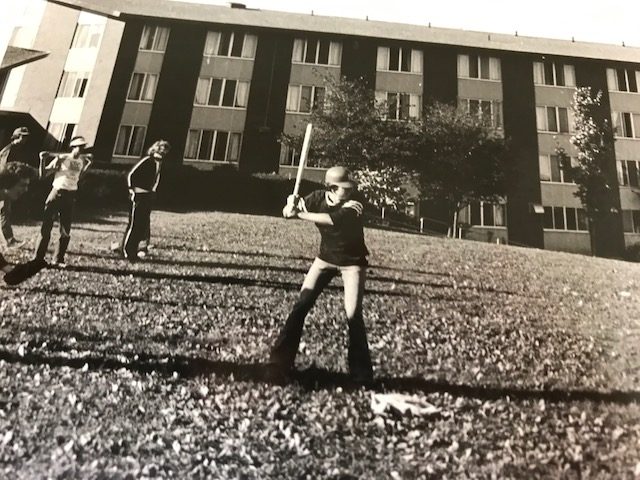Maggie Reid, Assistant Features Editor
If you go to the basement of the library, chances are you wouldn’t know that there is a room filled to the ceiling with artifacts, pictures and documents pertaining to the history of Utica College.
The Utica College Archives serves as the final repository for select information documenting the history of Utica College. Its primary purpose is to collect, preserve and provide access to records and information of permanent historical, legal and administrative value.
All of the archived information serves as a reference for administrators, students, faculty, alumni and other members of the community who wish to study UC’s historical development as well as its impact on the local community.
Archivist Anne Flynn believes UC is rich in history.
“There is a lot of valuable information in the Archives such as documents and pictures,” Flynn said. “Utica College opened in 1946 in Oneida Square. There were several buildings and in the late fifties, ground was broken on Burrstone Road, where the campus has experienced continued growth.”
Jo Ann Hayward, director of operations for Academic Affairs, believes the archives are important because they preserve the historical record of the college.
“We can look back at what we’ve done and how we’ve done it and we are preserving today for future generations to look back,” Hayward said.
Some interesting college artifacts include a picture of Hillary Clinton when she visited the UC campus, a picture of Professor Emeritus Virgil Crisafulli–one of UC’s original faculty members — with President John Kennedy when he ran for Congress, a telegram from Senator Robert Kennedy awarding a grant for the construction of the Physical Education Center and a letter from Eleanor Roosevelt declining a visit to Utica College.
Other notable records include documents pertaining to anniversaries such as the college’s 25th, 40th and 50th anniversaries. There are athletic brochures, yearbooks, every issue of the Tangerine and newspaper clippings, admissions materials, convocation and commencement information, student organization information and loads of other treasures.
Archives is an important place because it is a reliable source of information to look back on as the years pass.
“With normal changes in personnel over time, we do not always have an individual to ask how or why we’ve done something,” Hayward said. “The archives can answer those questions when there is no longer someone familiar with the situation working at the college. Most students, faculty, or staff are likely unaware of the extent of the materials in our archives and may never have the need to to access. But if you wanted to see the names of the graduating class of 1950, you could find a list in the archives.”
Just recently, archives was an important resource when Professor Emeritus Raymond Simon died earlier this month. When images and information pertaining to him were needed, Flynn had pictures already out to be used.
Archives has moved around throughout the years. It has been located in the Champlin House, Raymond Simon Convergence Center, Main Street in New York Mills and French Road in Utica before returning back to campus in room L130 in the basement of the Gannett Library.
Flynn usually gets about half a dozen information requests per month from faculty, staff, students and community members.
Hayward has used the archives on several occasions.
“Often it is a simple request, such as photos of long-term faculty or staff that are retiring from the college so we are able to put together a short history of their time here for a celebration,” Hayward said. “Most recently I was asked to review archived files for academic institutions and centers that have been created at UC to ensure consistency in organization and approval of each. Anne Flynn was able to provide files as far back as the 1970’s for review.”
Currently, Flynn is working on a reorganization project that started in October 2015 reviewing files and records that were transferred to other offices or temporarily placed in storage.
Along with staff member Lauren Robinson, they are working on a picture project reviewing all the photos in the Archives and preparing them for digitization.
“This can be challenging since many of the photos do not have any names, years or events listed on them,” Flynn said. “We research the pictures using yearbooks and sometimes the Tangerine and have called on faculty and staff to help identify some of the photos.”
The Archives Office is opened from 7:30 a.m. to 12:30 p.m. on Tuesday and Wednesdays and by appointment. For more information contact [email protected]


















![President Todd Pfannestiel poses with Jeremy Thurston chairperson Board of Trustees [left] and former chairperson Robert Brvenik [right] after accepting the university's institutional charter.](https://uticatangerine.com/wp-content/uploads/2023/10/unnamed.jpeg)


















































































































